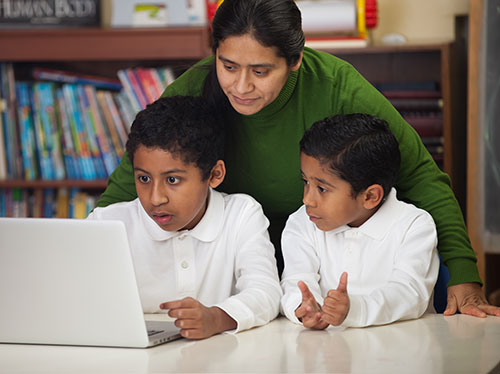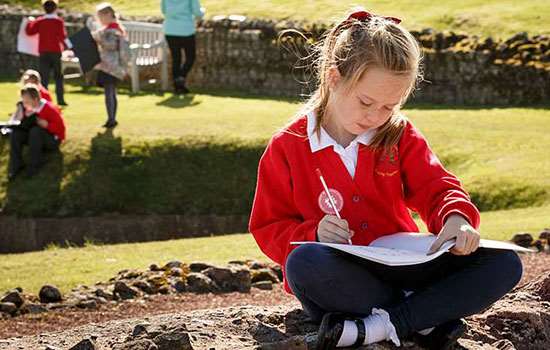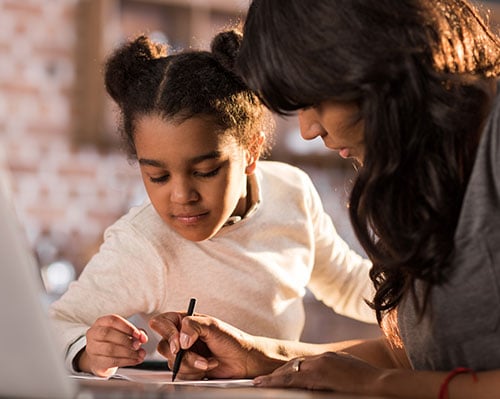
1. Plan for productivity
Time may be at a premium, but if you can, plan the learning ‘journey’ you want to go on, highlight any queries you might have and gather any resources needed. You’ll then be able to hit the ground running and maximise the learning potential. Your youngsters should always be working harder than you, but being across things can help you guide them, reduces wasted time and the opportunity for excuses!
2. Create a space for learning
If you can, have a dedicated space for learning activity at home. This could just be the table where you eat dinner, but it should ideally be consistent, temperate and conducive to stints of academic exercise. If it’s possible, find some space to display work, timelines, ideas, or questions to be answered. All can help maintain learning focus from day to day.
3. Promote a mindset for learning
It can sometimes be a tricky to maintain positivity but adopting a ‘can do’ attitude can certainly fortify the learning experience. For your children, particularly if transitioning from less mentally rigorous activity, allow time to ‘warm up’ their learning faculties. Start with activities securely in their comfort zone and then layer up to stretch and challenge them. Encourage by praising the process and progress made.
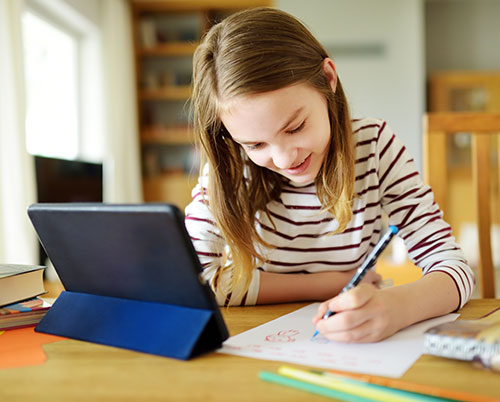
4. Expect achievement
Frame your expectations positively and be clear about the things they must do, should do and could do. Try to do this with awareness of your child’s values, aspirations and priorities. A shared understanding of goals means you can be the supporter of ambition, not fall into the role of an omnipresent nag.
5. Be clear about success
Communicate plainly about the specific things you’ll be evaluating the success of the learning activity against. Be that the correct spelling of ten key words, the inclusion of light and shade in a painting or the use of eye contact when talking about the reasons Henry VIII broke away from the Roman Catholic Church. Three to five points of reference, regularly checked in on, can help keep learning on track and provide a core tick list for achievement. This should also be motivational and encourage self-responsibility for learning.
6. Consider the consequences
Decide in advance how you’re going to respond should ‘a situation’ arise. What will you say or do if work isn’t done as expected or attitude below par? Planning a response may seem daft but this should never be a reason to fall out. Having a calm and considered response up your sleeve can help diffuse a potential catastrophe. Perspective is key.
7. Know your limits
Don’t berate yourself for not being an expert in all areas. Make the most of the help on offer and appreciate the opportunity to learn something new yourself alongside your child. Modelling how to solve a problem is a really valuable lesson to teach your children.
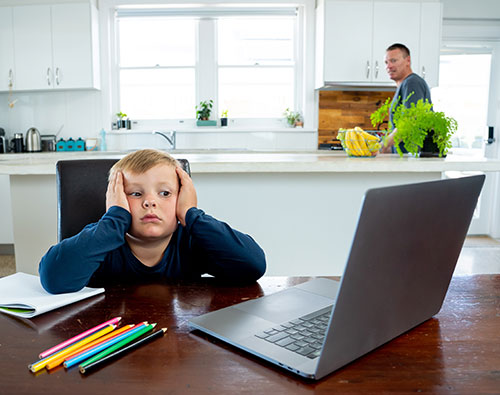
8. Know when to be flexible
If your child is just not engaging, take a break. It’s not like history is going anywhere! Do something else for a while and come back to it with a fresh head.
9. Share the load
Make use of others around you to help with the learning load. A call to a grandparent, for example, can be a great way to show off the fruits of the day’s learning, practise reading aloud or to discuss the challenges of carving a mortise and tenon joint into a bourbon biscuit when building Biscuit Henge.
...and remember
10. Look after yourself
You’re doing the best you can and no doubt juggling supporting learning with all the other things that come with daily life. Sharing your understanding about the importance of self-care is a great addition to any young person’s learning experience.

